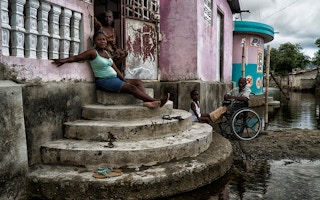Climate change could plunge tens of millions of city dwellers into poverty in the next 15 years, threatening to undo decades of development efforts, the World Bank said on Wednesday.
Fast-growing cities particularly in the developing world are ill-prepared to deal with increasing climate-related disasters, according to a joint report by the Bank and the Global Facility for Disaster Reduction and Recovery (GFDRR), which the Bank manages.
Globally more than one billion people - or one in seven people - live on less than $1.25 a day. But that figure could increase by 77 million people by 2030, unless cities planned better for climate-linked disasters, the World Bank said.
“
We’re approaching a tipping point for the safety of cities all over the world.
Ede Ijjasz-Vasquez, senior director, World Bank
The Washington D.C.-based institution called on governments to speed up investments in projects that shield the cities’ poorest from the effects of climate change, such as sea-level rise.
“Investing today in resilience measures is fundamental to secure a safe and prosperous future for cities around the world and for people living in them,” Ede Ijjasz-Vasquez, a senior director at the Bank, told a press conference.
“We’re approaching a tipping point for the safety of cities all over the world.”
Experts say securing new urban infrastructure against increasing climate risks will come with a price tag of roughly $1 trillion a year worldwide, according to the Bank.
Failure to make these investments could cost cities $314 billion a year from $250 billion per year today, the Bank said.
To help pay the bill, additional private investment will be needed to beef up funds available publicly, the Bank said.
The World Bank’s warning came ahead of a U.N. conference on housing and sustainable urban development next week in Ecuador, which aims to set out guidelines for sustainable cities over the next 20 years.
This story was published with permission from Thomson Reuters Foundation, the charitable arm of Thomson Reuters, that covers humanitarian news, women’s rights, trafficking, property rights and climate change. Visit http://news.trust.org.










